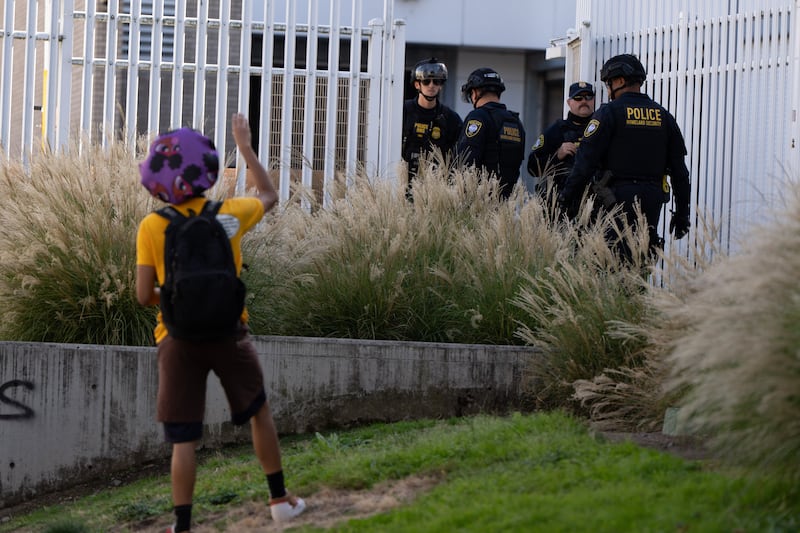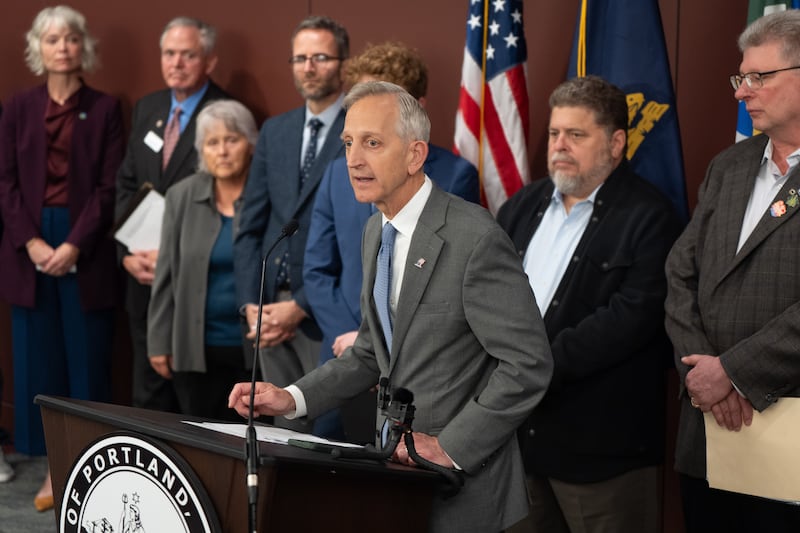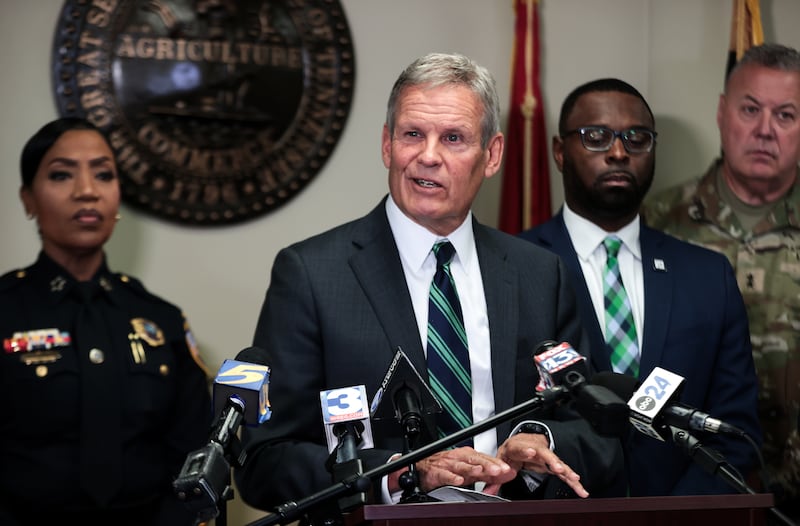President Donald Trump is pressing forward with his plan to send National Guard troops into various cities to tackle crime.
He previously announced that Memphis, Tennessee, would be the next U.S. city to see a presence. Trump shared earlier this month that he was working with Gov. Bill Lee, a Republican, to “fix” the city, just like he said he did in Washington, D.C.
The president acknowledged that he would have preferred to send troops to Chicago, but faced major pushback from Illinois Gov. JB Pritzker, a Democrat, and opted to avoid legal battles.
With plans in motion for Memphis, Trump has set his sights on another Democratic-led city.
In a post online Saturday, Trump said he was directing the Department of War to provide all necessary troops to “protect War ravaged Portland” and any Immigration and Customs Enforcement facilities that are “under siege from attack by Antifa, and other domestic terrorists.”

The state of Oregon and city of Portland sued the Trump administration to stop it from deploying National Guard troops.
Naming Trump, War Department Secretary Pete Hegseth and Homeland Security Secretary Kristi Noem, the lawsuit asks a federal court to stop the administration from implementing its plan to deploy troops by declaring it unlawful.
Oregon Gov. Tina Kotek, a Democrat, initially said she had not been provided information on the “reason or purpose” of a military presence in her state. She said there is no national security threat in Portland.
On Sunday, Kotek revealed that she received a memo from Hegseth authorizing 200 members of Oregon’s National Guard to perform federal functions for 60 days, including to protect federal property due to “likely” protests.

“When the president and I spoke yesterday, I told him in plain language that there is no insurrection or threat to public safety that necessitates military intervention in Portland or any other city in our state,” Kotek’s statement said. “Despite this — and all evidence to the contrary — he has chosen to disregard Oregonians’ safety and ability to govern ourselves. This is not necessary. And it is unlawful.”
Oregon’s suit argues that the administration is unlawfully using federal troops for domestic law enforcement efforts and infringes on its sovereignty as a state. The state is also arguing that the conditions for the administration to federalize the National Guard, like an insurrection or an attack by antifa like Trump said online, are not happening.
Portland Mayor Keith Wilson, a Democrat, said there was either a “misunderstanding or a lie” as the reasoning for troops to be in U.S. cities. He pushed back on the idea that Portland citizens were experiencing a crime wave.
While officials in Oregon are strongly against Trump sending the National Guard to their cities, some Republican lawmakers are welcoming it.

The president has the lawful authority to send troops to Memphis because Tennessee Gov. Bill Lee authorized the move. Earlier this month, Lee said he was in communication with the Trump administration for several months about driving down crime rates in Memphis.
According to Lee, the Tennessee National Guard, the FBI, the state Highway Patrol and the Memphis Police Department will work together in the state’s “next phase” to combat crime.
However, not everyone in Lee’s state is happy about the incoming federal presence. Memphis Mayor Paul Young, a Democrat, said the president’s remarks about him being happy with the announcement was “an overstatement.” Young said he did not support the National Guard coming to his city, but as mayor, he doesn’t have the authority to stop the president and governor’s decision. Young said he plans to work with the National Guard to strategize since there is nothing he can do to stop it.
Lee estimates that 150 National Guard members will be spread out across Memphis, though the number is not finalized. The National Guard troops won’t be armed unless local authorities request it, Lee said, according to The Associated Press.
Officials with other federal agencies will also be stationed in the state in the coming days. They will complete tasks from immigration to drug enforcement over the next several weeks and months, the AP reported.
In remarks to top military generals gathered at Quantico, Virginia, for a meeting Tuesday, Trump continued to make comments about changing Democratic-led cities through military intervention.
Major cities should serve as “training grounds” for the military, he said. Trump argued that the country was “under invasion from within” and it was “no different than a foreign enemy, but more difficult in many ways because they don’t wear uniforms.”
Trump noted San Francisco, Chicago, New York and Los Angeles as “very unsafe” cities and said his administration will “straighten them out one-by one.”
“This is going to be a major part for some of the people in this room. It’s a war, too. It’s a war from within,” he said.
The president justified his decisions by saying previous leaders used armed forces to “keep domestic order and peace,” but said now, when he tries to do it, “they say you aren’t allowed to use the military.”
While Trump was able to send the National Guard to Los Angeles over the summer by declaring anti-immigration enforcement protests as an emergency, and used D.C.’s Home Rule Act to deploy troops, it’s unclear if the president would have a justification for a different city that has no apparent emergency and is not specifically requesting the help.
Trump maintained for weeks that he wanted to send troops to Chicago, but local leaders pushed back and the administration shifted gears after it became clear that he would likely face a large legal battle over states rights and federal overreach.



